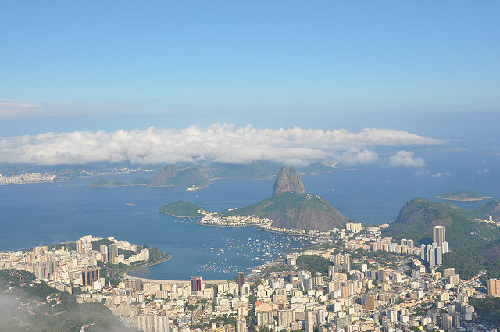Policy perspectives on the Rio Olympics
The report “Rio 2016: Perspectives beyond the mega-event” produced by Politheor, an international network-NGO of young political analysts and public policy scholars, contains a set of ten opinion articles about the changes, failures and new initiatives in Rio that were impelled by the upcoming Olympic Games.
A strong focus in this report is on the environmental issues that Brazil has been facing before the start of the Olympic constructions and during the months of preparations for the major event. In her op-ed, Louise Montgomery focuses on a largely ignored topic of wildlife trafficking in Brazil. Tine Stausholm touches upon the failure of the Rio organizers to clean up Rio’s dangerously polluted waterways and provide sanitation for at least 80 percent of the inhabitans before 2016. Crystal Chow writes about the urbanization of favelas in Rio and about how a strong community leadership in Rocinha, the largest favela in Rio, contributed to the construction of a community park with nature paths and communal green space.
In another article in the report, Izza Tahir highlights the question whether the Rio Olympics could become the “legacy games” as it has been heralded from the start, while Melina Monjour discusses how development can be managed through sport, using the EU standard practice in this area.
Another topic in the report is the problem of Olympic corruption and the ways of tackling it presented by Cedric Algoed. Irene Zugasti and Simon Marijsse write about another serious challenge for the upcoming Olympics: the extensive social protests in Rio on one hand, but on the other, the link between massive sport events and a flourishing of the sex industry.
The Zika virus, corruption scandals and anti-government demonstrations in Brazil have not contributed to the positive image of the country so far and the upcoming Olympics and its slow tickets sale prove that with a low average price of 18$ per ticket, writes Elien Verstraeten. She also discusses whether the extensive media coverage might be blessing or curse for local tourism.
The report is edited by Simon Marrijsse.
More information






